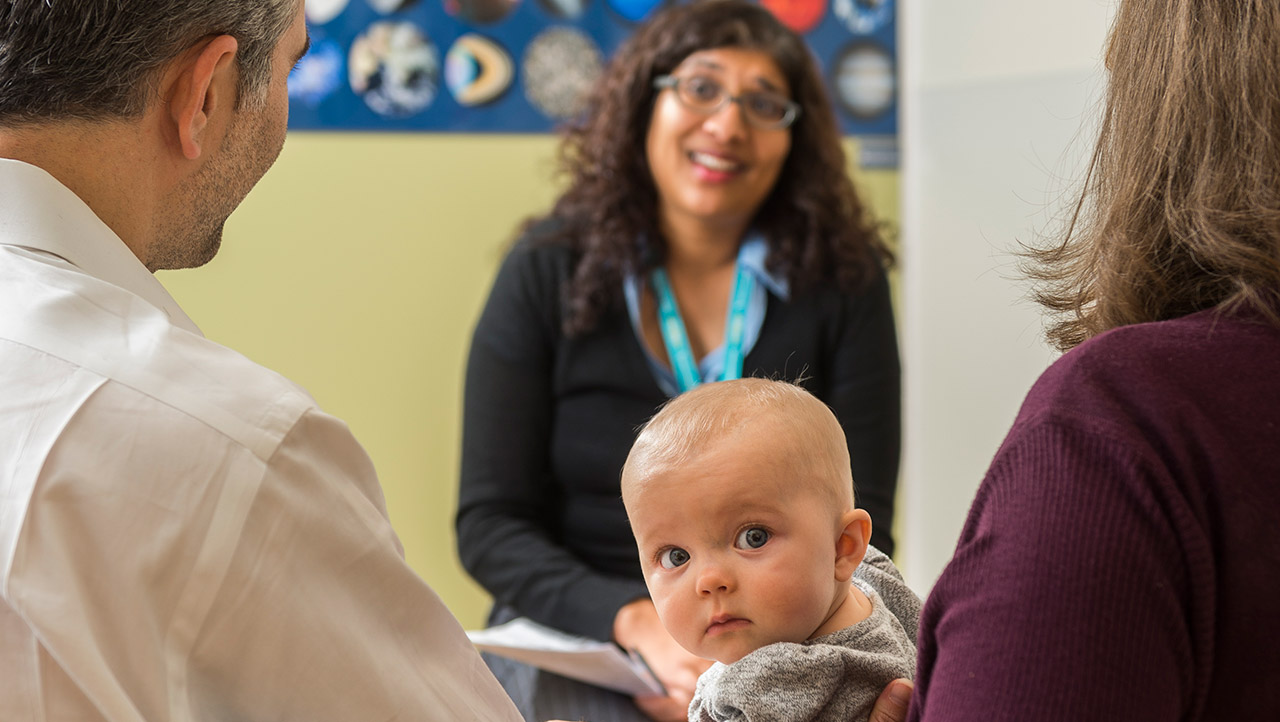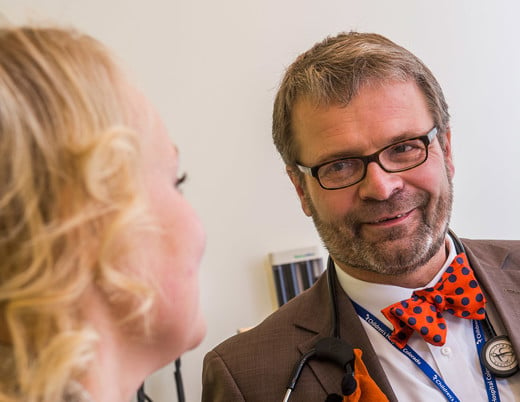For children with congenital hydronephrosis suspicious for ureteropelvic junction (UPJ) obstruction, a condition where the kidneys can't drain due to an obstruction, the path to recovery is uncertain. Some children will do well without surgery and others will not. But no one really knows how to predict that because no one has studied the long-term effects.
So varied is treatment, explains Vijaya Vemulakonda, MD, pediatric surgeon in the Department of Urology at Children's Hospital Colorado, that nationwide, anywhere from 30 to 80% of children will have surgery — which is complex, invasive and possibly more risky than not undergoing surgery — to correct suspected UPJ obstruction.
"We're likely over-treating some kids and under-treating others," she says.
The patient-provider relationship can impact a decision on surgery
Dr. Vemulakonda is dissatisfied with this ambiguity and is thus on a $750,000 research mission funded by the Agency for Healthcare Research and Quality. Over the next five years, she is studying how physicians and parents decide to proceed with early surgery in infants who may have UPJ obstruction.
"Parents feel a weight in making the right decision for their child," Dr. Vemulakonda says. "Even though we push for shared decision-making, many parents just want the physician to make the decision."
She is also looking at it from the physicians' perspective: What patient and parent characteristics would sway a provider to convince them to choose surgery?
"We want to do what’s right for the family," Dr. Vemulakonda says. But if the family doesn't engage with the physician, "we use unspoken cues to read the family."
Finding the best treatment to benefit the child
Early data show that how a physician reads those unspoken cues may vary based on the location, demographics and insurance status of the family. This implicit bias could affect how a physician provides information to a family, and if and how they guide a family to surgery.
For example, some physicians will guide families to have early functional kidney imaging; this type of evaluation is a huge predictor in whether or not children with hydronephrosis will have surgery. But not all families choose to have this imaging. Why? Is it the way it is presented to them? Is it being presented at all?
Ultimately, Dr. Vemulakonda wants to know if these kinds of variations in care, indicative of bias, are misguiding decisions about surgery, thus leading to subpar outcomes for children who have suspected UPJ obstruction. If that's the case, then her ultimate research goal is to develop guidelines by "taking those unspoken cues and making them explicit."
The field of pediatric urology is small, so data collection at any one location is difficult. In collaboration with urologists at Texas Children's Hospital and Rady Children's Hospital in San Diego, Dr. Vemulakonda will track practice patterns using data collection tools in Epic to see if there are variations in care that would predict which children have surgery and which do not.
Featured Researchers

Vijaya Vemulakonda, MD
Pediatric urologist
Department of Pediatric Urology
Children's Hospital Colorado
Professor
Surgery-Urology
University of Colorado School of Medicine





 720-777-0123
720-777-0123










